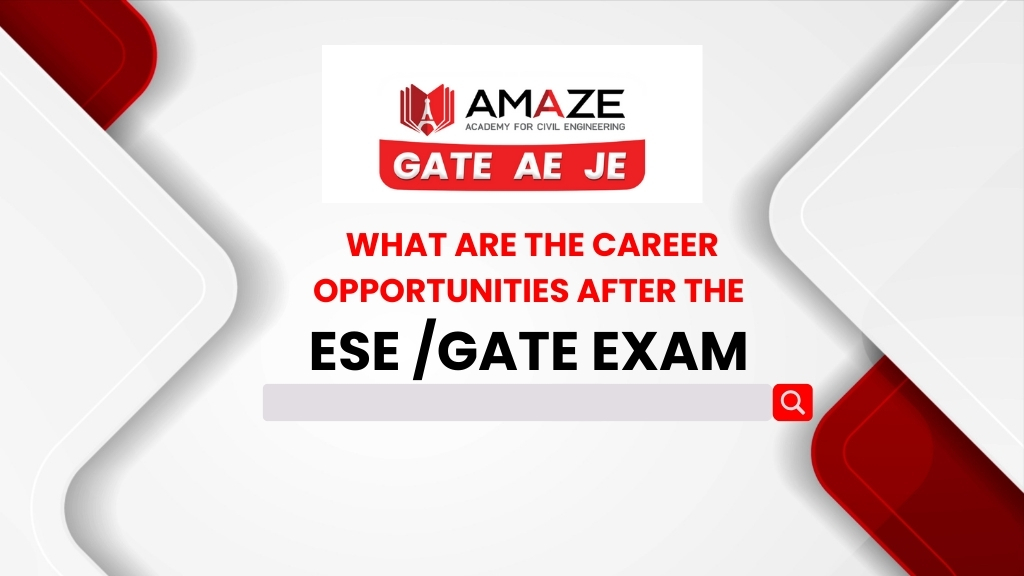What are the Career opportunities after the ESE /GATE exam?
Engineers are the architects of progress, shaping the landscape of technology, infrastructure, and innovation. For those who aspire to delve deeper into the realm of engineering, examinations like the Engineering Services Examination (ESE) and the Graduate Aptitude Test in Engineering (GATE) serve as gateways to a multitude of career pathways.
In today’s competitive job market, where specialisation and expertise are highly valued, the ESE/GATE exam holds significant weightage, opening doors to a plethora of lucrative and fulfilling career opportunities. Whether one envisions a career in government service, research and development, academia, or the private sector, success in these exams can act as a springboard towards achieving professional aspirations.
Graduate Aptitude Test in Engineering (GATE)
Overview:
- GATE is a prestigious examination conducted annually in February by either the Indian Institute of Science, Bengaluru, or one of the seven branches of the Indian Institute of Technology.
- Aspirants for GATE are typically graduates and postgraduates in engineering and science.
- Final-year students can also apply for GATE, making it accessible to a wide range of candidates.
Career Paths After GATE:
- Higher Education:
- A valid GATE score opens doors to premier institutes in India for higher studies.
- Selected candidates can pursue Master’s or Doctoral Degree courses in various disciplines.
- Institutes like IITs and IISc offer specialised programs based on GATE scores.
- Jobs in Public Sector Units (PSUs):
- Many PSUs recruit through GATE scores.
- These include organisations like BHEL, ONGC, NTPC, IOCL, and more.
- PSU jobs offer stability, good pay, and opportunities for growth.
- Junior Research Fellowships (JRF):
- GATE-qualified candidates can apply for JRF positions in research institutions.
- JRFs work on cutting-edge projects and contribute to scientific advancements.
- Teaching and Academia:
- GATE scores are valuable for teaching positions in engineering colleges and universities.
- Candidates can pursue a career in academia and contribute to education and research.
Engineering Services Examination (ESE)
Overview:
- ESE is conducted by the Union Public Services Commission (UPSC) annually.
- It recruits engineers from various streams: civil engineering, mechanical engineering, electronics and telecommunication engineering, and electrical engineering.
Career Paths After ESE:
- Government Jobs:
- ESE-selected candidates serve in various ministries and departments of the Government of India.
- They work in areas like Railways, Telecom, Border Roads, CPWD, NHAI, and more.
- ESE positions are prestigious and involve significant responsibilities.
- Civil Services (IES):
- ESE qualifiers become civil servants and hold the post of Indian Engineering Services (IES).
- They contribute to policy-making, project execution, and infrastructure development.
- Research and Development (R&D):
- ESE opens avenues in R&D organisations.
- Engineers work on innovative projects, technology development, and problem-solving.
- Consultancy and Private Sector:
- ESE achievers can explore consultancy roles or work in private companies.
- Their expertise is valued in sectors like construction, energy, and manufacturing.
Conclusion:
Both GATE and ESE are not just exams; they are gateways to diverse career opportunities. Whether you aspire for further studies, public service, or industry roles, these exams lay the foundation for a successful engineering career. So, prepare diligently, aim high, and embrace the exciting journey ahead!

